If you’re feeling a little bit gross about how much drinking you’ve done over Christmas, you might be considering Dry January.
Dry Jan sees people quitting booze during the month of January, following an over-indulgence over the festive period.
The campaign was first started by Alcohol Change UK to encourage people to consider how much they’re drinking and whether their relationship with alcohol is a healthy one.
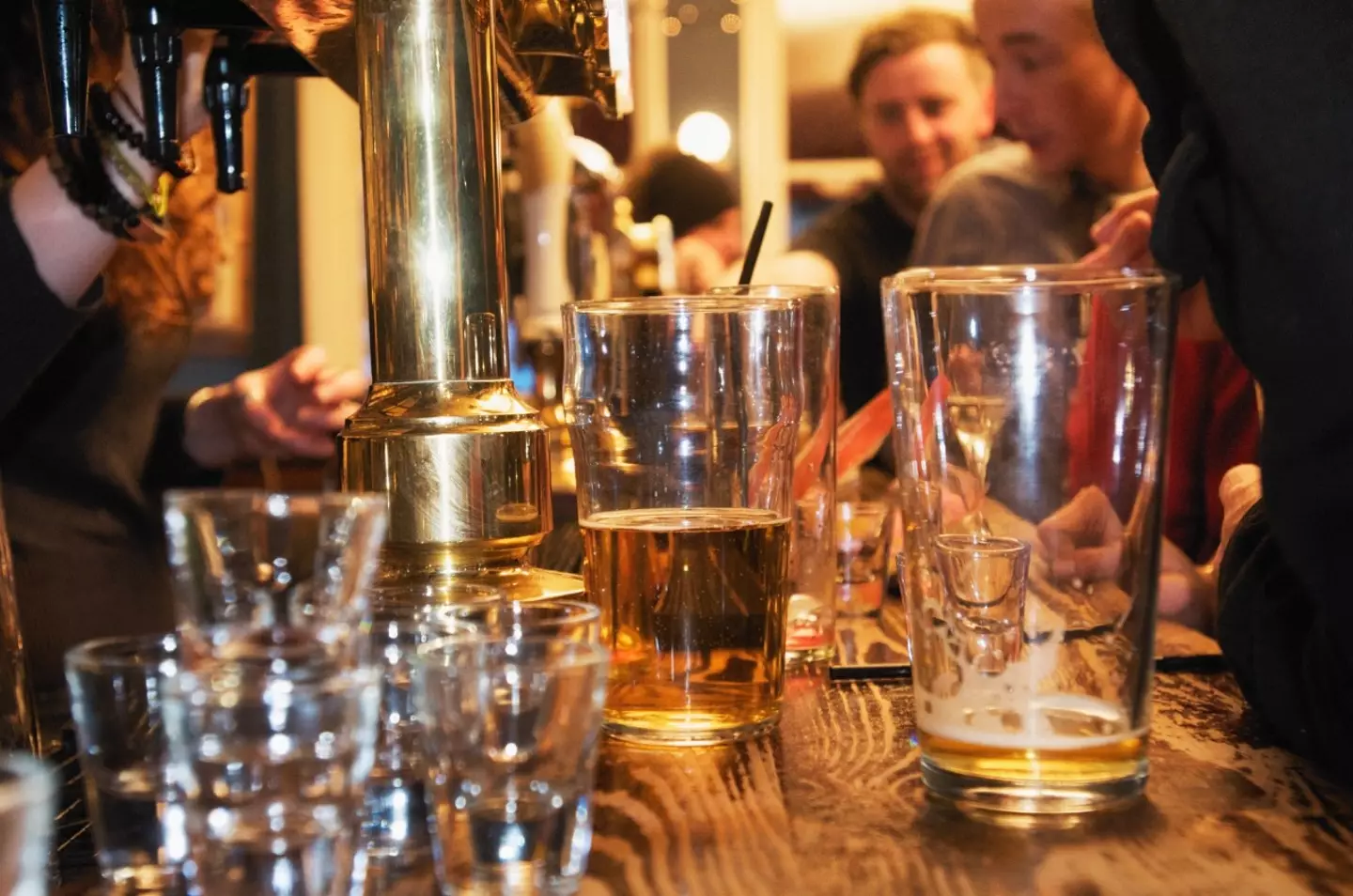
Many people over-indulge at Christmas (Getty Stock Image)
Many people take part in Dry Jan to have a New Year detox from the effects of drinking. As we know, excessive alcohol intake can lead to some unpleasant symptoms, as well as – in severe cases – something called alcohol-related liver disease (also referred to as ARLD).
If the liver has been severely damaged, you might experience symptoms including nausea; weight loss; loss of appetite; yellowing of the eyes and skin; swelling of the ankles and tummy; drowsiness and vomiting blood.
Even drinking a large amount over a few days can have an impact, leading to a build-up of fat in the liver.
The NHS explains that fatty liver disease rarely causes symptoms, and is actually reversible.
“If you stop drinking alcohol for 2 weeks, your liver should return to normal,” it says.
Essentially, if you’ve been overdoing it over Christmas, your liver could be back to ‘normal’ by mid-January.
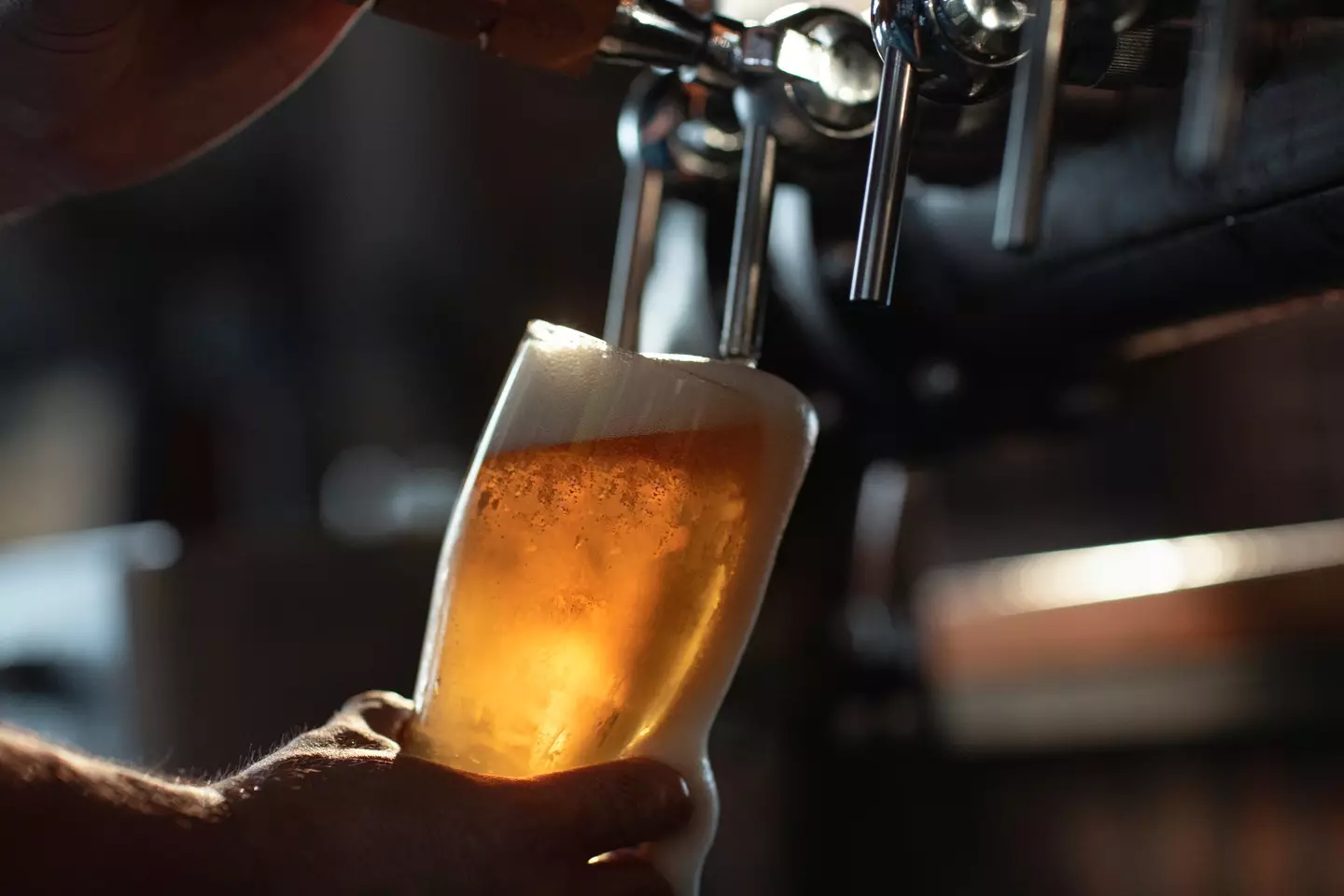
Taking part in Dry January can help evaluate your relationship with alcohol (Getty Stock Image)
But there are some exceptions. According to the Cleveland Clinic, it could take a little longer.
“There is no ‘one size fits all’ answer,” said Dr Christina Lindenmeyer.
“It depends on how much damage has already been done and any possible complications.”
They explain that a two to four-week abstinence from alcohol helps reduce inflammation in the liver, however, if your liver has suffered from the long-term effects of alcohol, doctors may recommend you ditch the booze for good.
“For patients who are left with cirrhosis after severe injury to the liver from alcohol, even one drink of alcohol is toxic to the liver,” Dr Lindenmeyer added.
Cirrhosis is where the liver has become scarred. It’s not usually reversible but stopping alcohol can help prevent any further damage.
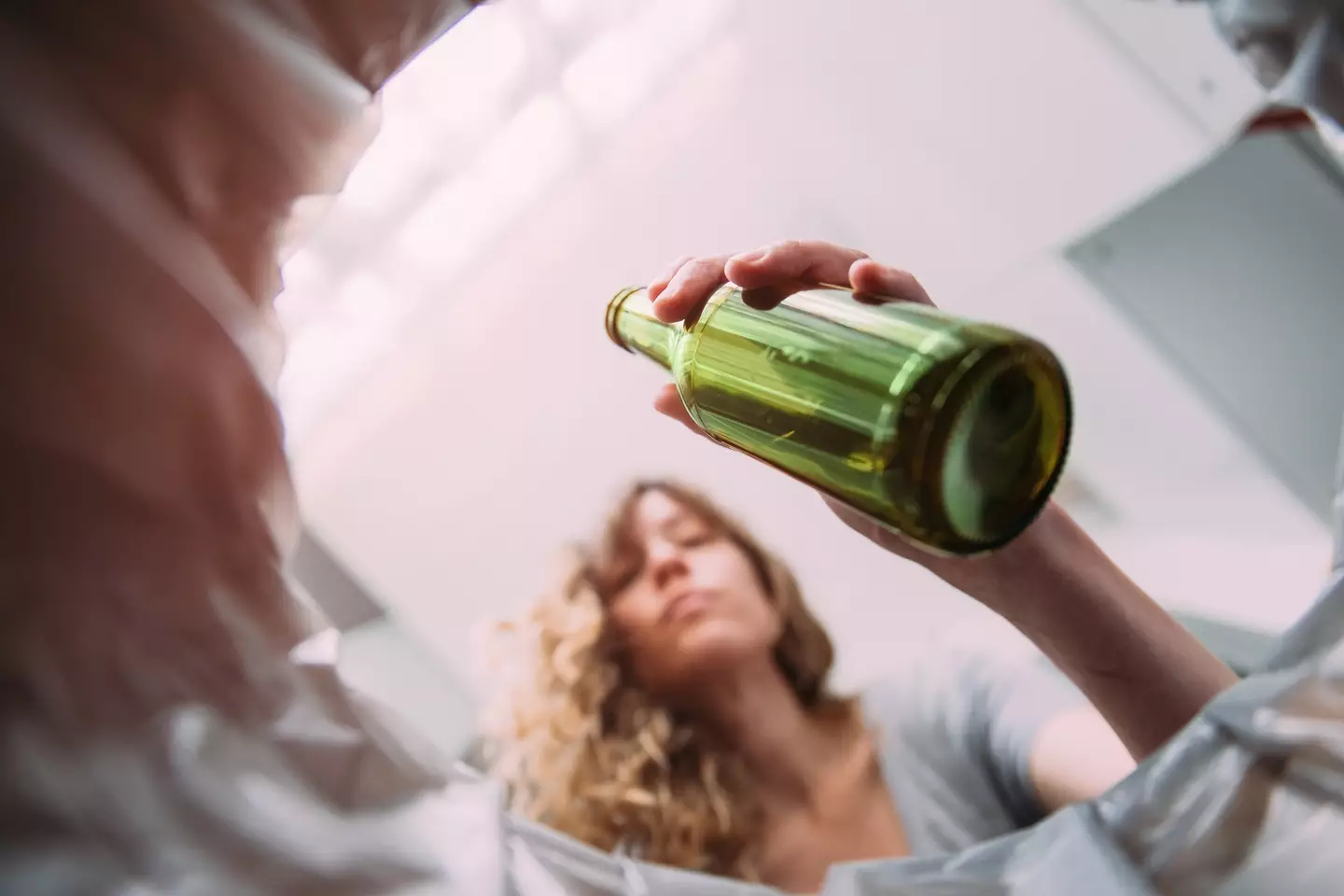
People often quit drinking in January (Getty Stock Image)
If you’re concerned about your alcohol intake, one doctor has revealed the main question you can ask yourself to help determine if your relationship with booze is unhealthy.
Speaking to LADbible, Dr Donald Grant, GP and Senior Clinical Advisor at The Independent Pharmacy explained: “Typically, it takes a while before people notice their own dependence, but spotting it early can limit long-term health risks and help people take control of their lives.
“One of the main questions people should ask themselves is ‘Do I generally end up drinking more than I originally planned?’ As this can be a massive indicator of unhealthy dependence.
“Struggling to have only one drink can suggest a mental dependence on drinking and is a major symptom experienced by many alcoholics.”
Please drink responsibly. If you want to discuss any issues relating to alcohol in confidence, contact Drinkline on 0300 123 1110, 9am–8pm weekdays and 11am–4pm weekends for advice and support.

As a non-drinker, I used to be sceptical of ‘Dry January’ because it didn’t make sense to stop drinking for one month, only to drink for 11 consecutive months of the year.
However, after learning of the benefits, it does make a lot of sense.
But if cutting out booze for 31 days is too much of a challenge, then ‘damp January’ may work for you and could actually be more sustainable.
What is ‘damp January’?

Hana went viral for taking part in the ‘damp lifestyle’ drinking trend on TikTok in 2022 (Instagram/@hana.elson)
New York-based Hana Elson went viral for taking part in the ‘damp lifestyle‘ drinking trend on TikTok in 2022.
Essentially, the term relates to lessening your alcohol throughout the month, leading to a potentially ‘positive domino effect’.
In a recent video under the handle (@hana.elson), she revealed a list of rules she implemented in 2022 which have helped her tremendously with her relationship with alcohol.
Hana’s ‘damp January’ lifestyle habits
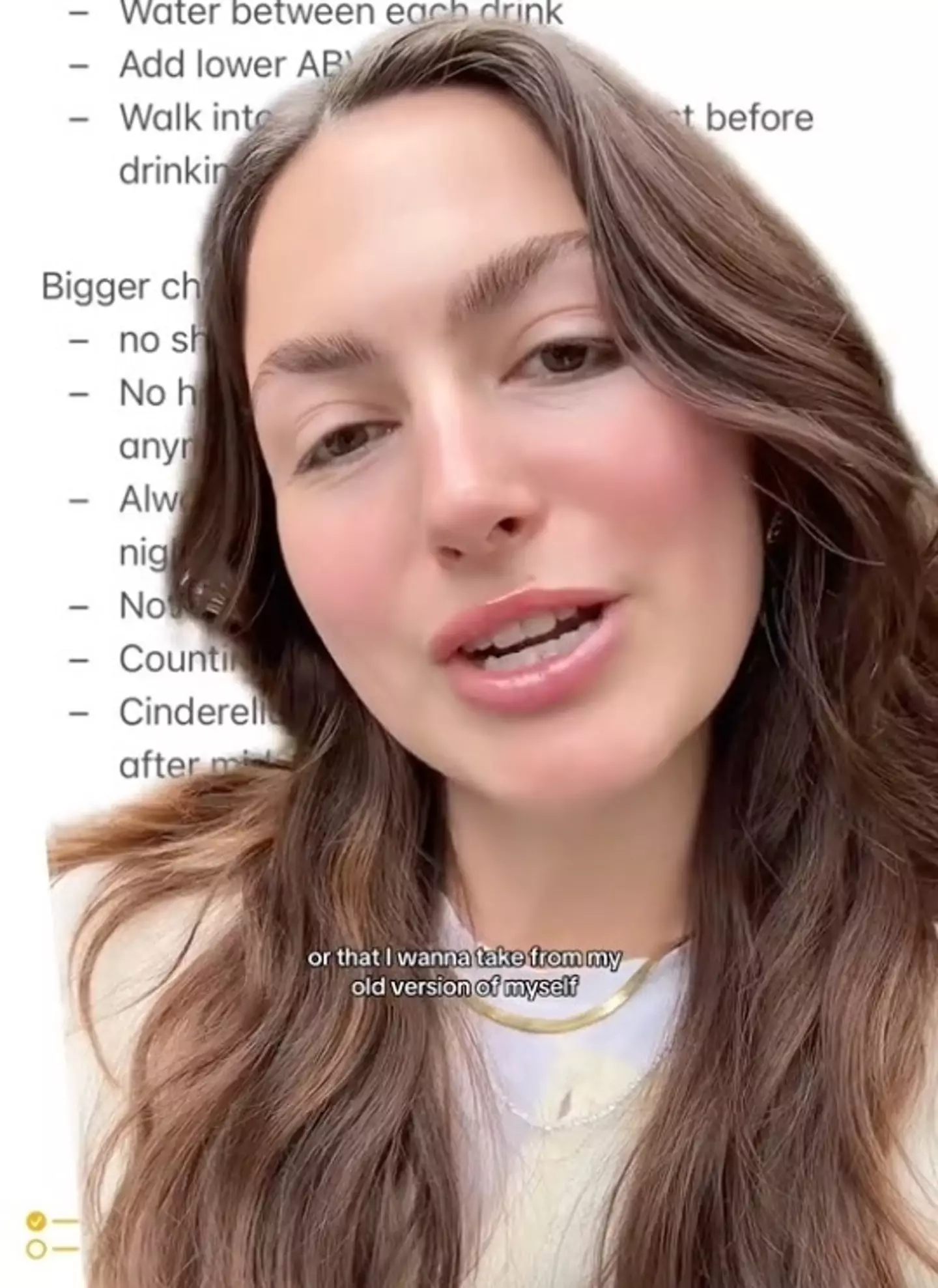
Hana has explained why ‘damp January’ may work for you (TikTok/@hana.elson)
Start small:
– Starting with a mocktail as your ‘getting ready’ drink
– Water between each drink
– Add lower ABV options
– Walk into environments sober first before drinking
Bigger changes:
– No shots
– No hard alcohol
– Always sticking to the same alcohol in a night (or try it once a weekend, etc)
– Not drinking during the weekday
– Counting drinks per night
– Cinderella nights (AKA nothing after midnight)
Hana explained: “So these types of habits really help with that. Yes, I want to bring back no shots. I used to call it my golden rule. Do you find that when you say no, no one cares?
“This one is huge and also so hard to do in New York City. So I’m going to try my best not drinking during the weekday. You just have to be careful that you’re not then living for the weekends.
“If you want to count, there’s great apps, Sunnyside’s a good one. Having ‘Cinderella’ nights. I used to always talk about this on their page.
“I pretty much made up the term, like nothing good happens after midnight. So doing the nice but safe Irish exit around 11:30pm, I promise it will make you feel better the next day.
“For me, I want to do a Dry January and then probably a damp February, just lean into reality again. Because for some people, this is all just normal tips of what they do drinking every day.
“If you’ve ever struggled with your mental health, you just want to feel better in general, it’s not just about your relationship with alcohol. This is such a positive domino effect.”
Please drink responsibly. If you want to discuss any issues relating to alcohol in confidence, contact Drinkline on 0300 123 1110, 9am–8pm weekdays and 11am–4pm weekends for advice and support.
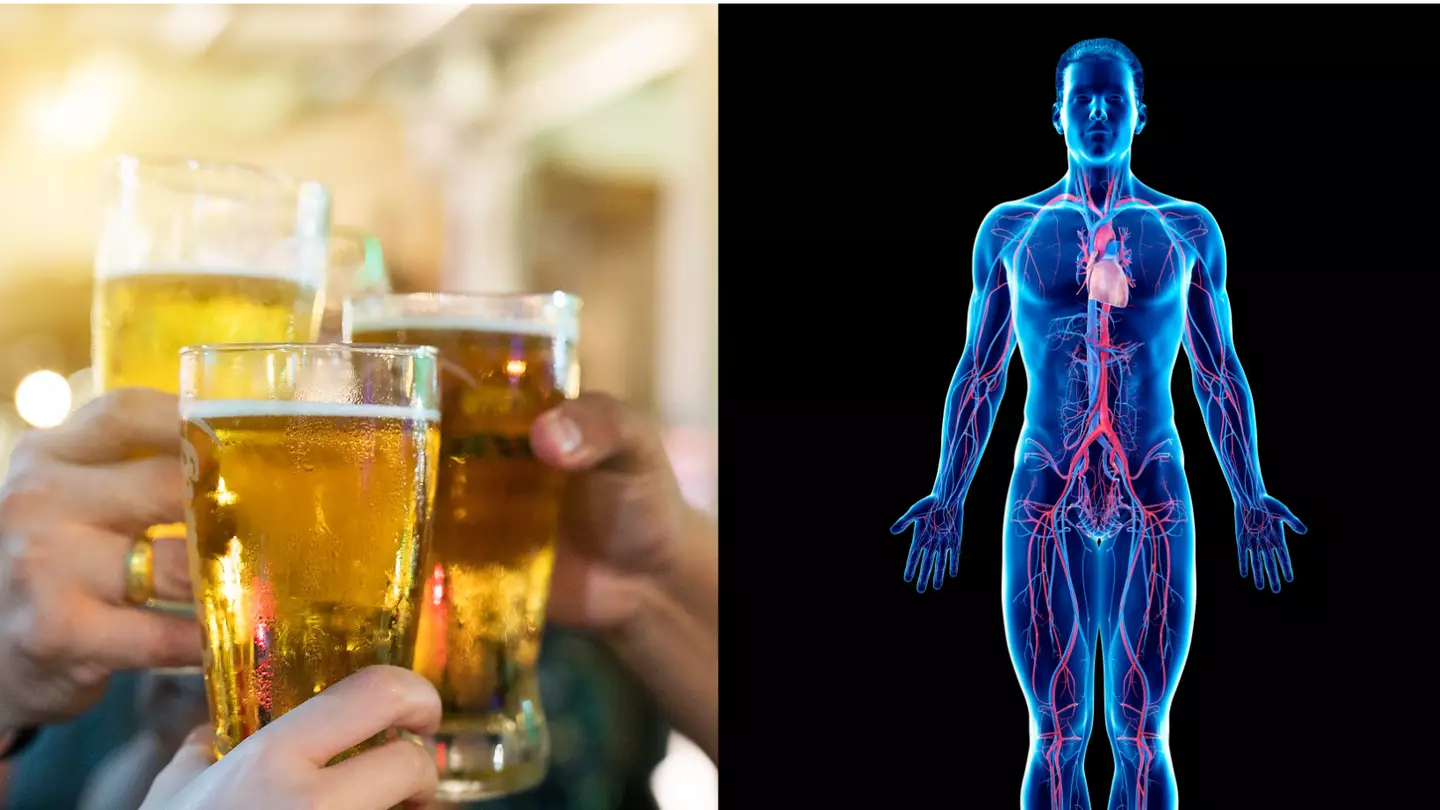
We’ve made it nine days into the year, which means that those who are taking part in Dry January have managed to go more than a week without a bevvy. Congratulations!
Plenty of folks opt to ditch the booze during January – especially if you felt you had a particularly heavy December – and it can have a pretty big impact on your health, not to mention your finances.
If you are choosing to abstain from alcohol for the month of January, then you may be interested to know exactly what’s happened to your body in the nine or so days since.
Yep, you may not feel as though much time has passed since 31 December, but there are a lot of effects that giving up the sauce for a month can have on your body – depending on how much you usually drink – and some of them kick in just hours after you give up, according to Delamere.
Firstly, as you passed through the 12 to 24 hour point, you may have started to feel some withdrawal symptoms. This could be sweating, restlessness, and retching.
Your sleep is likely to have been disturbed, and you could have experienced some alcohol cravings, and a low mood.

Pexels/Isabella Mendes
Up to 72-hours after your last alcoholic drink is considered to be the most dangerous period if you are a very heavy drinker. In extreme cases, this could mean an increased heart rate, raised blood pressure, and seizures.
Between day three and seven, for most people the symptoms will begin to recede. However, for a few cases it could actually worsen and become Delirium Tremens, or DTs. If this does happen then you should speak to a doctor as soon as possible.
A week in, you should have noticed your sleeping pattern beginning to improve, though it can sometimes take longer.
As we creep towards the two week mark, you may notice some weight loss, depending on how much you normally drink, as you are not taking in calories from your beverage of choice.

Pexels/Andrea Piacquadio
From three to four weeks, you may see your blood pressure improving if alcohol was a factor in it before.
Finally, at the one month mark you could see some improvement in your skin.
For the majority of people, cutting out alcohol for a month is a good way to reduce your consumption, and the dangers are only a factor in more extreme cases.
If you do choose to start drinking again, you can do so because you enjoy it rather than perhaps as a compulsion or social crutch.
As a caveat, I would like to add that, if you are a heavy drinker or think you have a problem you should speak to your doctor. Suddenly stopping alcohol consumption completely can be dangerous in extreme cases, and should be done under medical supervision.
Please drink responsibly. If you want to discuss any issues relating to alcohol in confidence, contact Drinkline on 0300 123 1110, 9am–8pm weekdays and 11am–4pm weekends for advice and support
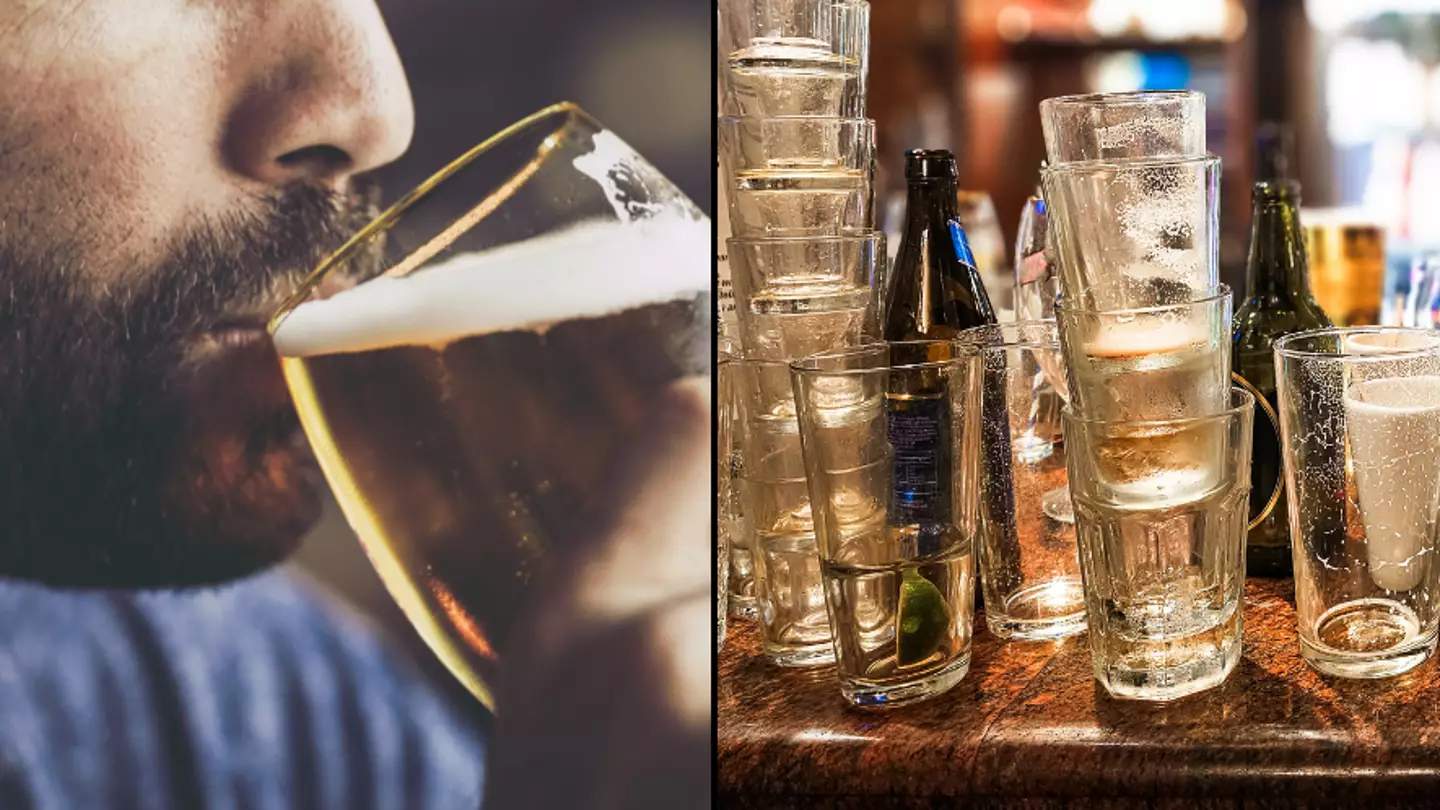
Here are four warning signs which could suggest you are falling into the alcoholic danger zone as Christmas approaches.
The festive season often goes hand-in-hand with excess and indulgence. In order to make up for the cold, wet and windy weather outside, most of us will spend our time enjoying tasty food and getting merry.
Chances are that most of us will likely drink more than usual during the holiday season, but are you worried you could be taking your drinking habits a little too far?

We all enjoy a drink at Christmas – but could you be at risk of falling to alcoholism? (Getty Stock Images)
Here are four warning signs which could mean you’re falling into the alcoholic ‘danger zone’.
Lack of routine
Lifestyle changes such as retirement or extended periods of time off can also leave people vulnerable to alcohol issues, as they seek to fill their time.
“In my experience as a therapist, I’ve seen unhealthy drinking habits accelerate after retirement,” councillor Andrew Harvey explained to The Telegraph.
“Lifestyle change is hard for most of us. Giving up a routine that’s been in place for decades can really shake people up.”
Habitual drinking
Another sign which could indicate that you’re sliding into an unhealthy relationship with alcohol is habitual drinking, which is were knocking back the booze finds itself entwined in your day-to-day activities.
“You get into a pattern of drinking the same way every day: a glass of wine while cooking dinner, a nightcap before bed,” The Priory’s Dr Niall Campbell told the outlet. “It can soon build.”
You prefer situations which involve drinking
As we’ve already mentioned, the Christmas holidays are seen by many as a time to drink a little bit too much and brush it off as enjoying themselves or letting their hair down.
READ MORE: NINE WARNING SIGNS YOU’RE DEPENDENT ON ALCOHOL
EIGHT WARNING SIGNS YOU COULD BE A HIGH-FUNCTIONING ALCOHOLIC
However, this also means the endless roster of work parties, meet-ups at the pub and family gatherings can make it much harder to distinguish whether how dependant you are on the booze.
“Alcohol is often a bigger struggle in winter, partly because it’s so accessible and seen as a “warming” comfort on cold days, which can lead to more frequent drinking,” Jamie Giles, Director of Outpatient Services at Castle Health told LADbible.
“There’s also the social side of alcohol, with winter gatherings, parties, and pub outings making it easy to drink heavily.”
Using alcohol as an emotional crutch
One of the tell-tale signs that you’re drinking is moving into the danger zone is when you begin to use alcohol as a release rather than something to enjoy.

Here are four warning signs which indicate you could be falling into the alcohol ‘danger zone’ (Getty Stock Images)
People often find that reaching a stage of intoxication can help with stress and loosening their inhibitions, hence the phrase ‘drowning our sorrows’. However, the UK Addiction Treatment Centres states that once alcohol becomes a ‘key coping strategy’ you’re at a greater risk of developing alcoholism.
“When days are short, dark, and cold, people naturally start feeling lower, and for some, this season brings more anxiety or even depression,” Giles added.
“Alcohol often becomes a go-to for a quick warmth or mood boost.”
Featured Image Credit: (Getty Stock Images)
Topics: Alcohol, Christmas, Food And Drink, Health, Mental Health
.png)
Here is everything that happens to your body when you try the new ‘zebra striping’ drinking technique.
What the hell is ‘zebra striping‘ I hear you ask? Well, the term is a fashionable rebrand for drinking soft drinks in between alcoholic beverages. Let’s say you bought four drinks at the pub, two of them would be beer or wine and two of them would be something less poisonous for your body, such as water.
The benefit of alternating between alcoholic and non-alcoholic drinks is both physical and fiscal, as not only will you save money on buying cheaper drinks but you will also (hopefully) wake up the next day with less of a hangover.
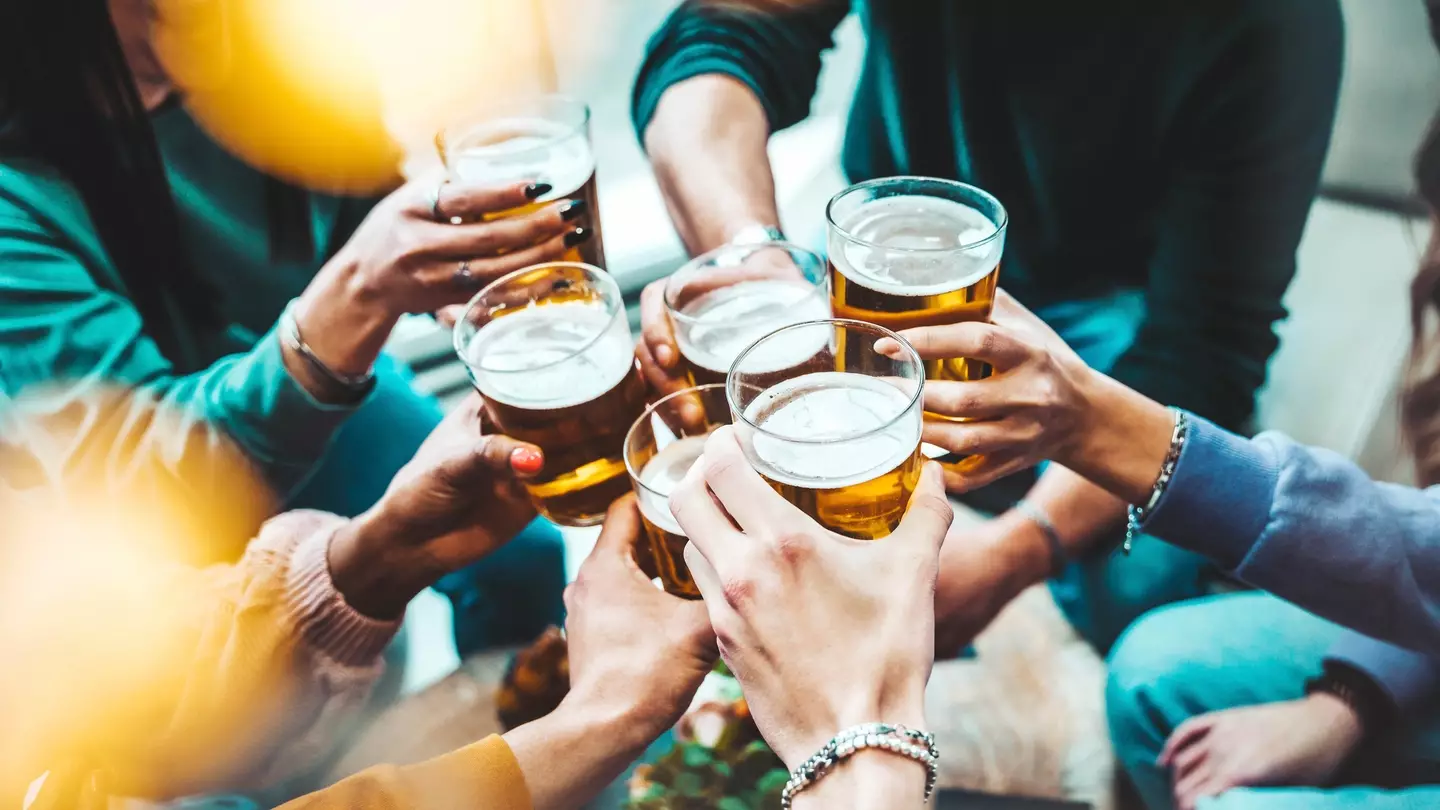
Expect to see more glasses of water if you or your friends start zebra striping. (Getty Stock Images)
Why a fairly straightforward concept needs to be given a nickname such as zebra striping is anyone’s guess, but it’s reassuring to see that young people are embracing sensible ways of enjoying their favourite tipple.
Is our relationship with alcohol changing?
Britain’s alcohol habits are changing. According to research published by the Portman Group earlier this year, there is a huge rise in people aged 18-24 who consider themselves regular or occasional drinkers of low- and no-alcohol products.
The study noted that 39% of those surveyed avoided alcohol altogether, which is huge considering that a significant percentage of people in this age bracket would be students.
It seems like the days of downing shots and dirt cheap bottles of beer and alcopops then.
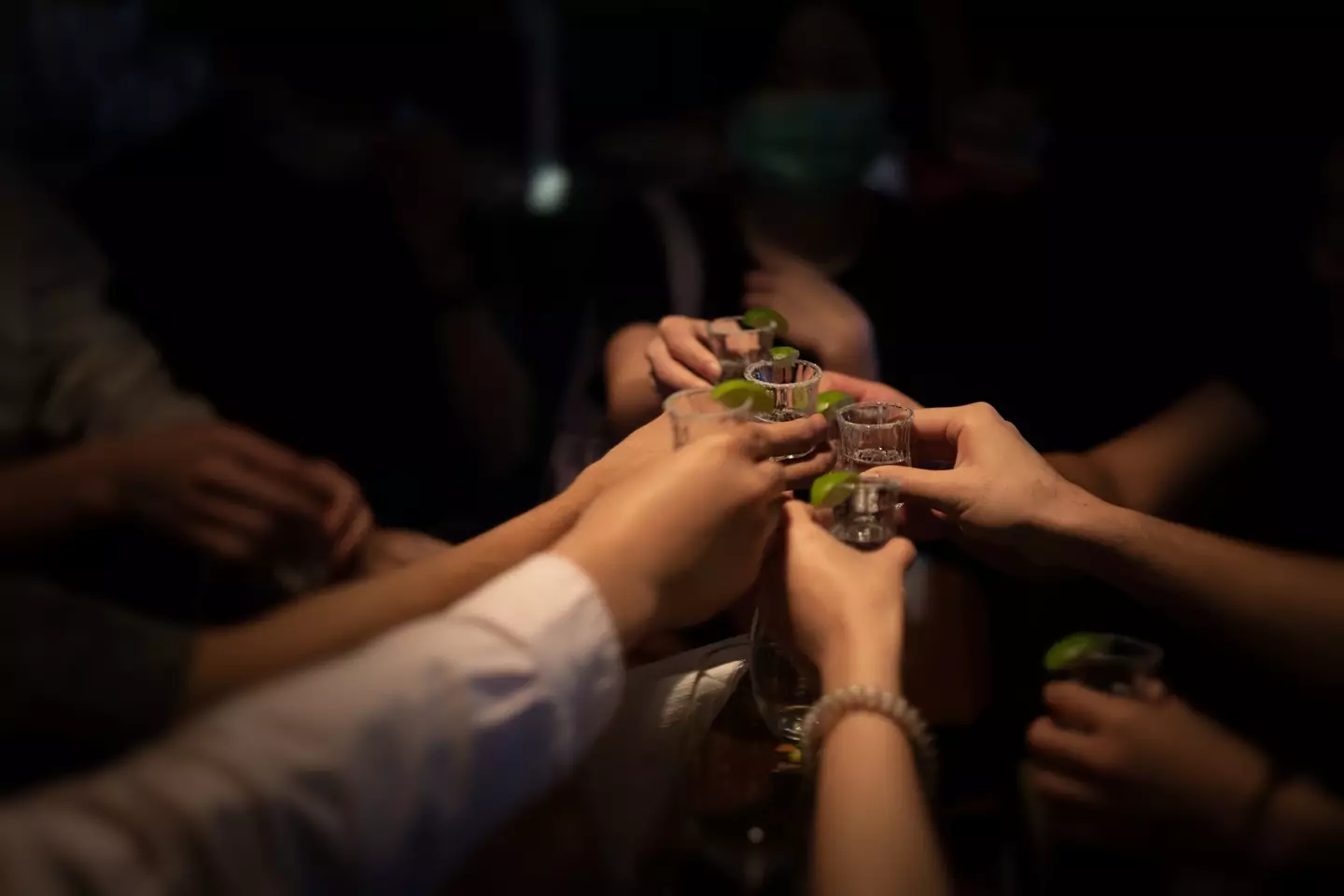
Zebra striping could be equally beneficial to our health and wallets. (Getty Stock Images)
Is practicing zebra striping really that beneficial to your health?
According to pharmacist Ian Budd, who recently spoke to Metro, consuming less alcohol on a night out could lead to a delay in feeling the effects of drinking as it breaks up the amount of alcohol being processed through your liver.
“The liver metabolises alcohol at a fixed rate – approximately one unit of alcohol per hour,” he explained.
“By drinking water in between alcoholic drinks, you give your liver more time to process the booze, which results in a lower peak blood alcohol concentration, which reduces the acute effects of alcohol, such as impaired cognitive function, coordination and judgement.”
Meaning you can stay out and enjoy yourself for longer.
Budd also noted that alcohol is a ‘diuretic’ – which leads to increased urine production, dehydration and subsequently hangovers. By increasing your water intake, your body maintains adequate hydration, meaning less severe hangovers.
While there is currently no concrete evidence proving that methods such as zebra striping are good for us long-term, being aware of how much alcohol we consume is never a bad thing.
Budd also noted that alternating between having a night of drinking and a night off drinking when going out can be even more beneficial, adding that introducing regular alcohol-free days gives your body longer to recover and therefore decreases your risk of developing alcohol-related diseases.
